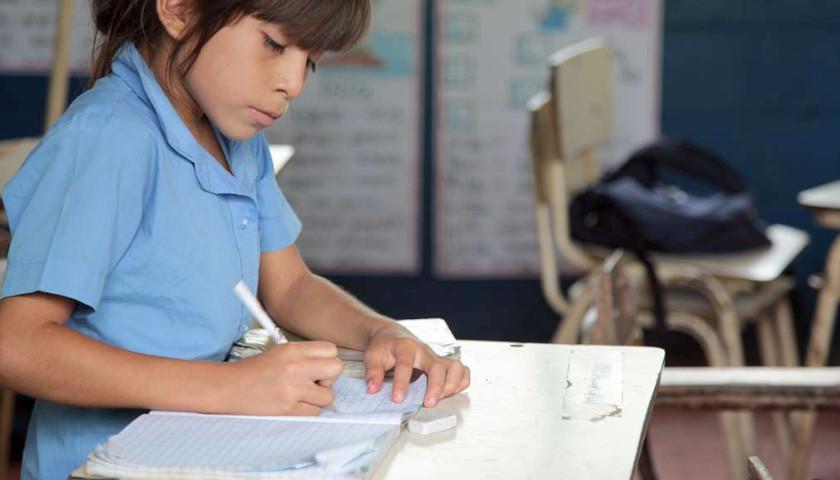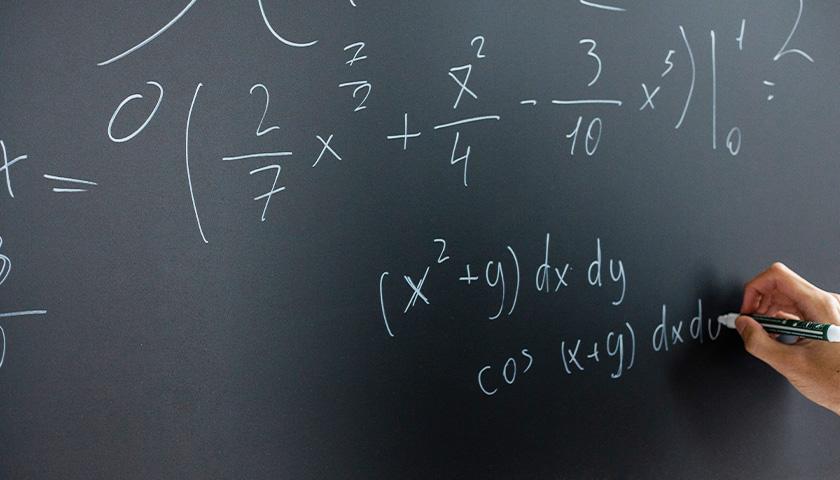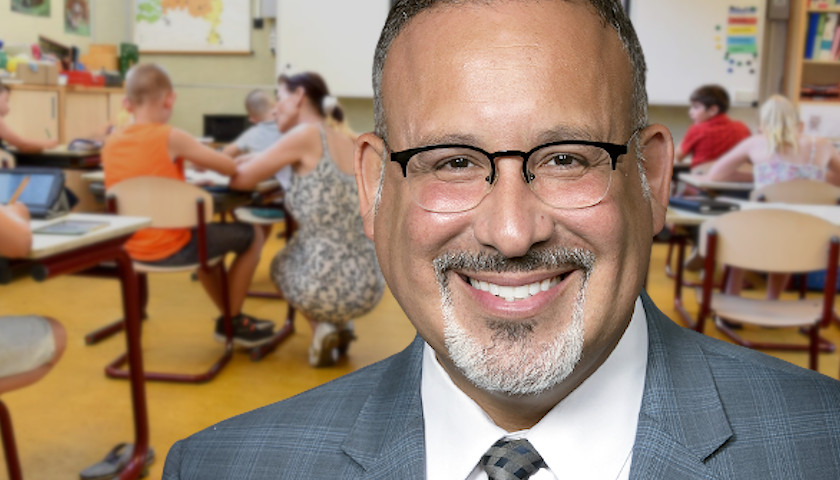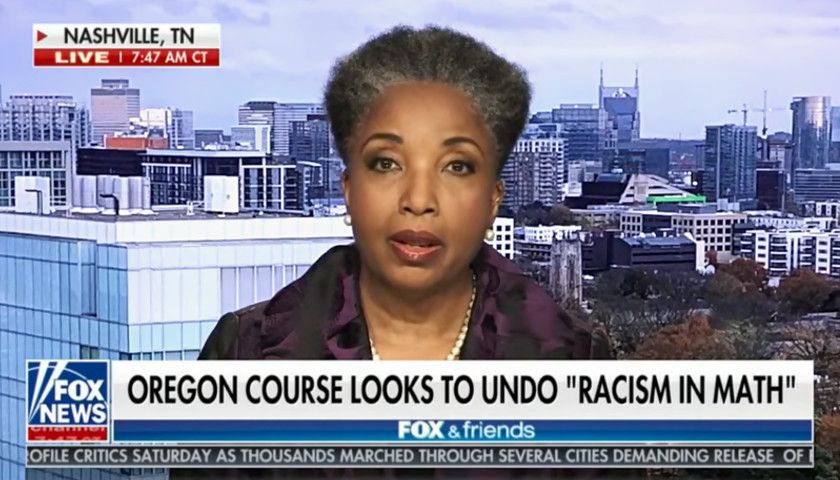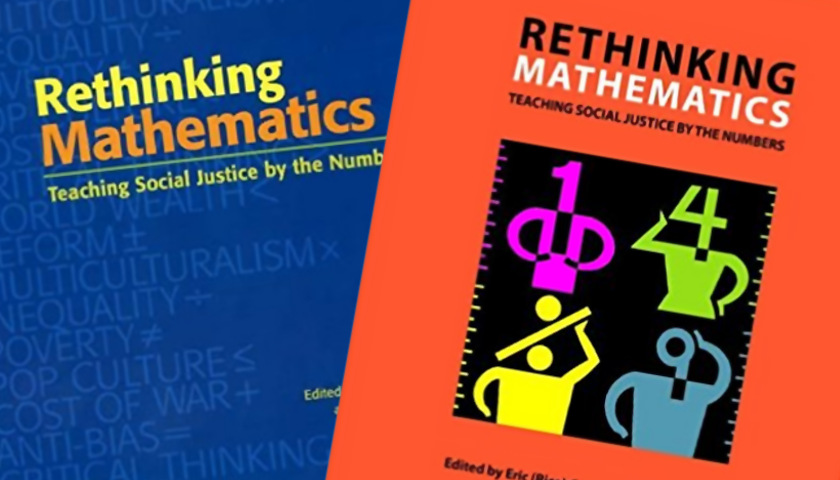State Representative Scott Cepicky (R-Culleoka) joined The Tennessee Star Report with Michael Patrick Leahy on Thursday to discuss the General Assembly’s legislative agenda for major educational reform, including triggers in kindergarten, first, and second grade designed to identify struggling students and provide them with tailored interventions to bridge the educational gap and accelerate academic success – particularly foundational reading and math skills.
Read the full storyTag: mathematics
State Lawmaker Plans to Introduce Bill to Help Math Retention Rates for Tennessee Students
State House Representative Scott Cepicky (R-Culleoka) told The Tennessee Star that he plans to introduce a new bill that closely resembles Temnnessee’s existing third-grade retention bill for literacy.
Tennessee implemented new policies last year to address low literacy rates among third-graders. This coming year, Tennessee lawmakers intend to turn their focus to mathematics.
Read the full storyU.S. 13-Year-Olds Show ‘Historic Declines’ in Math and Reading
Math and reading achievement for 13-year-olds in the United States is at its lowest level in decades, according to test scores from the National Assessment of Educational Progress (NAEP) examination, also known as the Nation’s Report Card.
According to results released Wednesday by the National Center for Education Statistics (NCES), the average mathematics score for 13-year-olds plunged nine points between the 2019‒20 and 2022‒23 school years, while the average reading score declined four points over the same time period.
Read the full storyTeachers, Activists Push School Districts to Drop Calculus in the Name of Equity
Teachers and activists are pushing for high schools to drop their calculus courses to increase equity as many minority and low-income students don’t have access to the class, according to The 74, a nonprofit news organization covering education.
In the 2017-2018 school year, 76% of schools with “low student of color enrollment” offered calculus while 52% of schools with a high proportion of students of color offered the advanced math course, according to a Learning Policy Institute report. The course, teachers and activists argued, is disproportionately offered to students not of an underrepresented group, giving other students an advantage in the college admissions process, according to The 74.
Read the full storyCollege Math a ‘White, Cisheteropatriarchal Space,’ Vanderbilt Professor Says at Major Conference
An education professor delivered a lecture in early January at a major mathematician meeting that described college math as “white” and “cisheteropatriarchal.”
“Undergraduate Mathematics Education as a White, Cisheteropatriarchal Space and Opportunities for Structural Disruption to Advance Queer of Color Justice” was the full title of the lecture given by Luis Leyva, associate professor of mathematics education at the Peabody College of Education and Human Development at Vanderbilt University.
Read the full storyBiden Education Secretary Miguel Cardona Blames Abysmal U.S. Student National Test Scores on Trump
The Biden education department announced Thursday that U.S. students’ plummeting scores in reading and math during the COVID-19 pandemic is all due to former President Donald Trump.
“Today’s data confirm the significant impact the prior Administration’s mismanagement of the pandemic has had on our children’s progress and academic wellbeing,” said Biden Education Secretary Miguel Cardona Thursday, following the report that U.S. students showed their steepest decline in decades in math and reading scores during the COVID school shutdowns.
Read the full storyFlorida Rejects 41 Percent of Submitted Math Books over CRT, Other Issues
The Florida Department of Education is rejecting more than 40% of the mathematics textbooks submitted to be used in the upcoming school year, citing critical race theory, Common Core and other language included in them that violate the state’s new standards.
“Reasons for rejecting textbooks included references to Critical Race Theory (CRT), inclusions of Common Core, and the unsolicited addition of Social Emotional Learning (SEL) in mathematics,” the department said in a news release.
Read the full storyTennessee Textbook Commission Member Laurie Cardoza-Moore Discusses Tennessee Department of Education Progressive New Hire Rachael Maves
Friday morning on the Tennessee Star Report, host Michael Patrick Leahy welcomed Tennessee Textbook and Instruction Materials Quality Commission member Laurie Cardoza-Moore to the newsmakers line to discuss the hiring of progressive Rachael Maves to the DOE.
Read the full storyReport Card Measuring U.S. Grades in Education Shows ‘Concerning’ Results
For the first time in nearly 50 years, the National Assessment of Educational Progress results showed that the reading and mathematics scores of 13-year-old students fell from 2012 to 2020.
The National Assessment of Educational Progress (NAEP) results showed no change in the scores of 9-year-old students since 2012, according to the assessment, also known as The Nation’s Report Card. Among lower-performing students, scores declined in both the 9 and 13-year-old groups in both reading and mathematics.
“This was the first time in the almost 50-year history of the long-term trend assessments that we observed declines among 13-year-olds,” said National Center for Education Statistics Commissioner Peggy G. Carr in a press release. “These performance drops are especially notable among lower-performing students, who no longer demonstrate competency in skills that students were able to do almost a decade ago in both subjects and age groups.”
Read the full storyMichigan Undercounted Nursing Home COVID-19 Deaths, Reporter Says
ulitzer Prize-winning journalist Charlie LeDuff says Michigan has undercounted COVID-19 nursing home deaths.
The accusation follows a settlement between the Michigan Department of Health and Human Services (MDHHS) and LeDuff with legal services provided by the Mackinac Center for Public Policy. LeDuff and the MCPP sued the government when it failed to provide public records as required by law.
“This data is an essential part of accurately understanding the effects of this pandemic and the public policy implemented in response,” Steve Delie, an attorney and the Mackinac Center’s FOIA expert, said in a May 21 statement. “It also leaves open the possibility that the state is undercounting the number of deaths of those in nursing homes.”
Read the full storyDr. Carol Swain: Oregon’s New Teacher Training Claiming Mathematics is Racist is ‘Lunacy of the Political Left’
Dr. Carol M. Swain appeared on Fox News Channel’s Fox and Friends Weekend Edition with host Pete Hegseth Sunday morning to discuss the lunacy of the Oregon Department of Education’s new teacher training claiming mathematics is racist and supports white supremacy.
Read the full story‘Social Justice Math’ Misses the Point of Learning Math
by Abigail Herbst It’s a common occurrence: a math teacher stands at the front of the classroom, struggling to keep the student’s attention. One student is on the phone. Another stares straight ahead into the distance. And the kid in the back row is asleep. Again. However, as the teacher moves to the next topic, one student blurts: “Why do we have to learn this? When are we ever going to use this?” And there it is. The perennial question: why do we learn math? When I was in high school, teachers responded to this question by pointing out that we need math when we go grocery shopping, when we’re building, and in certain careers. In short, we learn math because it is useful. Professor Eric Gutstein and his colleagues are trying a new approach—they’re trying to make math more “relevant” by infusing cultural issues into math. Mr. Gutstein and colleagues compiled articles from educators nationwide to put together a book titled, Rethinking Mathematics: Social Justice by the Numbers. It gives teachers tips for mixing social justice issues into math classes. Looking at the chapter titles gives you an idea how they plan to do this. Mr. Gutstein wrote a chapter…
Read the full storyIdentity Politics Is Now Undermining Science
by Michael Liccione The prestige of science in our culture is well-earned. That scientists discover truths (or at least serviceable approximations to truths) is undeniable. The evidence for that is how successfully scientific findings have been applied for centuries as technology, which has improved life greatly for countless people. Sound science depends on methodologies that are as objective as possible, in the sense of being designed to minimize various forms of bias. Through objective methodologies we can discover what is really the case, versus what we want or expect to be the case. It’s how science corrects its errors over time and makes progress. But scientific progress is now threatened by a new form of ideology. This time around it’s not religious ideology, but political. It’s not news that identity politics and two of its intellectual pillars—the push for “diversity” and the theory of “intersectionality”—have strongly influenced the practice of the social sciences. A good deal of the peer-reviewed literature in sociology, political science, and even psychology is now produced from that perspective, and amounts to political advocacy. This decline in the objectivity of the social sciences is seen by many as a virtue, because the bias is seen as favoring the right sorts…
Read the full storyHow a FedEx Employee Discovered the World’s Largest Prime Number
Jon Pace, a longtime FedEx employee, has loved math since high school. Today, he’s a flight operations finance manager with the Memphis-based delivery behemoth—and is also now credited with discovering the largest prime number currently known. It’s a whopping 23.2 million digits long.
Read the full story


